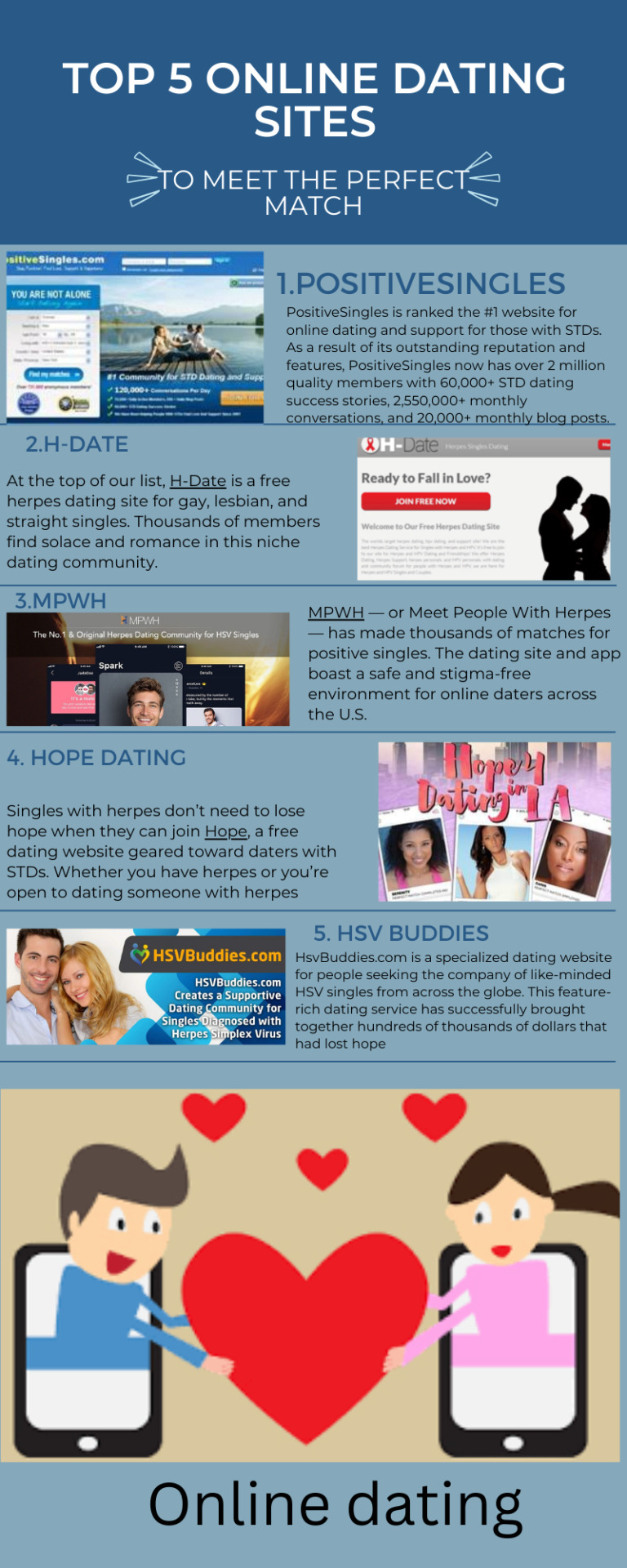#DATING WITH HIV
Text
How do you catch HIV if you are not an LGBT+ gay person?
HIV (Human Immunodeficiency Virus) is a virus that can be transmitted through certain body fluids, including blood, semen, vaginal secretions, and breast milk. The most common ways that HIV is spread include:
Unprotected sexual contact: HIV can be transmitted through unprotected vaginal, anal, or oral sex with someone who is infected with the virus.
Sharing needles: HIV can be transmitted through sharing needles or other injection equipment with someone who is infected with the virus.
Mother-to-child transmission: HIV can be passed from an HIV-positive mother to her child during pregnancy, childbirth, or breastfeeding.
Blood transfusion and organ transplant: Although rare, HIV can be transmitted through blood transfusion or organ transplant from an infected donor.
It's important to note that HIV does not discriminate based on sexual orientation or gender identity. Anyone can become infected with HIV, regardless of their sexual orientation or gender identity. Therefore, it is important for everyone, regardless of their sexual orientation or gender identity, to practice safe sex and take other precautions to reduce their risk of contracting or spreading HIV.
Meet people with HIV near you
0 notes
Text
i feel like they actually did a really good job during s6 addressing ian's sexual history and trauma and the shame that might come with it and then they just. dropped it all
#like him getting tested for hiv and being afraid to tell caleb abt the strip club & the porno#him talking to mandy abt starving himself#him not knowing how to go on dates bcs as much as gallavich was the best they never got the chance to be a stable couple#not rly! and its important to acknowledge how much that mightve affected ians perspective#on the world and on himself#shameless#except then i dont think they ever did it again after s6 but ill take what i can get
3 notes
·
View notes
Text

Give a child love, laughter and peace, not HIV
#herpes#hiv#std#hsv1#hsv#positivevibes#herpesquotes#genitalproblems#care#positivesingles#hsv dating#health#hivdating#equality#hiv aids#hiveswap#aids epidemic#aids#hiv infection#herpessingles#emotional#hivcure#stddatingsite#std dating#communication#communicable disease control#hiv symptoms#hiv survivors
10 notes
·
View notes
Text

You Are My Person!!!
#relationship#relationshipgoals#relationships#relationshipquotes#relationshipadvice#relationshipmemes#relationshipcoach#relationshipproblems#relationshiptips#relationshiprules#positivesingles#positivesinglessite#herpes#std#dating#herpesdating#lifewithherpes#hiv#hivpositive#aids#datingonline#communication#intimacy#care#health#mentalhealth#love#couple#couplegoals#hsv
3 notes
·
View notes
Text

It's take a strong person to remain single in a world that is accustomed to setting with anything just to sat they have something
#alone#hope#love#couples#couplegoals#hiv#hivinfection#hsvdating#hsvcure#hsv#hsv1#hsv2#genital#herpes#std#healthquotes#dating#hivawareness#stddatingsite#meetwithherpes#relationshipgoals#aids#lovequotes#herpesquotes#life#selfmotivation#self healing#self love#self care
2 notes
·
View notes
Text
Which is More Stressful, Herpes or HIV?

The diagnosis of a sexually transmitted infection (STI) can be an incredibly stressful and anxiety-provoking experience for anyone. Two of the most well-known and stigmatized STIs are herpes and HIV. While both conditions can have significant impacts on one's physical and mental health, it's worth examining which one may be more stressful to deal with.
Herpes is caused by the herpes simplex virus (HSV) and manifests as painful, fluid-filled blisters or sores on the genitals, rectum, or mouth. There are two main types of herpes - HSV-1, which typically causes oral herpes (cold sores), and HSV-2, which is the more common cause of genital herpes. Herpes is a lifelong, incurable condition, with periodic outbreaks that can be triggered by stress, illness, or other factors.
The psychological impacts of a herpes diagnosis can be quite significant. Many people experience feelings of shame, guilt, and stigma due to the sexually transmitted nature of the virus. There are also concerns about disclosing one's status to current or future partners. The recurring nature of herpes outbreaks can also lead to ongoing stress and worry about when the next flare-up might occur.
However, herpes is ultimately a manageable condition. Antiviral medications can help reduce the severity and frequency of outbreaks. And while there is no cure, many people with herpes are able to have healthy, fulfilling sex lives by taking precautions and communicating openly with partners. The physical symptoms, while unpleasant, are usually not life-threatening.
In contrast, HIV (human immunodeficiency virus) is a chronic, potentially life-threatening condition that attacks the body's immune system. If left untreated, HIV can progress to AIDS (acquired immunodeficiency syndrome), which severely weakens the immune system and leaves the individual vulnerable to opportunistic infections and certain cancers.
The psychological burden of an HIV diagnosis tends to be even heavier than that of herpes. There is often intense fear, anxiety, and grief over the prospect of a shortened lifespan and the many unknowns of living with a serious, stigmatized condition. The social stigma and discrimination faced by people with HIV can also be immense, leading to further isolation and mental health challenges.
Additionally, the physical impacts of HIV/AIDS can be quite severe, including fatigue, weight loss, neurological issues, and life-threatening infections. While antiretroviral therapy (ART) has greatly improved the prognosis for people with HIV, allowing many to achieve an undetectable viral load and near-normal life expectancy, the side effects of the medications and the ongoing management of the condition can still be very stressful.
It's also important to note that the stress and anxiety associated with an HIV diagnosis can have tangible effects on one's physical health. Chronic stress can weaken the immune system and make it more difficult for the body to fight off infections. This "mind-body connection" is particularly significant for those living with a condition like HIV.
That said, it's crucial to acknowledge that the level of stress experienced can vary greatly from individual to individual, regardless of the specific STI diagnosis. Factors like personal resilience, access to quality healthcare, and levels of social support can all play a major role in how someone copes with and adapts to living with herpes or HIV.
Ultimately, while both herpes and HIV can be immensely stressful to manage, the chronic, life-threatening nature of HIV, coupled with the intense social stigma, suggests that an HIV diagnosis may be the more stressful of the two. The prospect of a shortened lifespan, the complex medical regimen, and the added burden of stigma can make the psychological impacts of HIV substantially more severe.
However, it's important not to minimize the very real stress and difficulties faced by those with herpes. And for some individuals, the uncertainty and lack of a cure for herpes may be even more distressing than the relatively predictable course of HIV with effective treatment.
while HIV may be the more inherently stressful of the two conditions, the subjective experience of stress and coping can vary greatly from person to person. Empathy, understanding, and access to quality medical and mental health support are crucial for those navigating the challenges of any sexually transmitted infection. Ultimately, the most important factor is ensuring that all individuals feel empowered, cared for, and able to manage their condition to the best of their ability.
Some tips for relieving stress for people living with herpes or HIV:
For those with herpes:
Educate yourself and others. Learn about the facts of herpes - it's a common, manageable condition that doesn't have to define you. Sharing accurate information can help reduce stigma.
Focus on self-care. Make sure to get enough sleep, eat a healthy diet, exercise regularly, and engage in stress-reducing activities like meditation, yoga, or hobbies you enjoy. Taking good care of your overall health can help minimize outbreaks.
Seek counseling or Herpes support groups. Speaking with a therapist can provide a safe space to process the emotions around a herpes diagnosis. Connecting with others in similar situations can also help reduce feelings of isolation.
Disclose carefully and selectively. Only share your status with partners when you feel ready. Focus on building trust and intimacy, not just on your diagnosis. Many people with herpes go on to have fulfilling sex lives.
Reframe your mindset. Try to shift your perspective from seeing herpes as a "problem" to managing it as a chronic, manageable condition. Avoid catastrophizing, and remember that you are still the same person.
For those with HIV:
Educate yourself on treatment advances. Remind yourself that with proper medication and care, many people with HIV can achieve an undetectable viral load and near-normal life expectancy. Knowledge can help alleviate fears.
Build a strong support system. Surround yourself with trusted friends, family, or a support group who can provide emotional, practical, and social support. Feeling isolated can greatly exacerbate stress.
Prioritize mental health care. Seek out counseling, support groups, or a therapist who specializes in HIV/AIDS. Addressing anxiety, depression, or trauma is crucial for overall wellbeing.
Practice stress management techniques. In addition to self-care basics, explore methods like deep breathing, meditation, mindfulness, or creative outlets to help you cope with the ongoing stress.
Advocate for yourself. Be an active partner in your healthcare, asking questions, voicing concerns, and ensuring you receive the best possible care and support. Feeling empowered can increase resilience.
Challenge self-stigma. Work to overcome internalized shame or negative beliefs about living with HIV. Remind yourself that you are more than your diagnosis.
Ultimately, the key is to develop a multifaceted approach to managing the physical and psychological impacts of these conditions. With the right support and coping strategies, it is possible to live a fulfilling life with either herpes or HIV.
#herpes dating#hsv singles#std dating#positive singles#herpes dating site#romantic#dating with herpes#passion#lovers#hiv positive
0 notes
Text

Tinder knows what's up! I hear people say that they don't like these types of ads but if you live in ignorance you're at risk of spreading transmittable conditions.
People assume you can only get them from sex workers and party animals but anyone can be a carrier. Stay aware, be safe, and don't spread!
0 notes
Text
World AIDS Day 2023: Practical Steps for Risk Reduction
Reducing the risk of AIDS is a collective effort that involves informed choices and proactive measures. Here are 10 tips to help you navigate the path towards a lower risk of HIV infection:
Prioritize safe sex by consistently and correctly using condoms during every sexual encounter.
Regularly undergo HIV testing, especially if engaging in high-risk behaviors or having multiple partners.
Opt…

View On WordPress
#1 december 2023#aids day#AIDS Day 2023#aids day slogans#causes of aids#hiv awareness#World AIDS Day 2023#World AIDS Day 2023 date#World AIDS Day Facts#World AIDS Day theme
0 notes
Text

#1 HERPES & STD DATING COMMUNITY & SUPPORT RESOURCE FOR POSITIVE SINGLES
#dating#disease#doctors#online dating#dating sites#couplegoals#couples#community#communication#intimacy#breakingstigma#std#hsv dating#hivdating#hsv infection#hiv aids#hiv infection#livewithherpes#healthy life hacks#positive life#positivethinking#positive mental attitude#love#breast cancer awareness#hivawareness#aids#healthy
2 notes
·
View notes
Text

Never Let Me Go!!!
#couplegoals#love#lovequotes#relationship#positivesingles#positivesinglessite#herpes#herpesdating#datingwithherpes#std#stddating#hiv#hivpositive#hivdating#aids#dating#datingonline#precautions#kiss#couplekissing💏#relationshipgoals#hsv
2 notes
·
View notes
Text

proud to be with stds
All STDs, herpes, hiv positive singles and couples, join us for more fun
https://www.PositiveSingles.com/i/dzt1
0 notes
Text
Once again thinking about how “Doctor Doctor” first aired in 1989 and had a main cast of characters consisting of the following:
- A very silly main character who is also very competent at his profession and knows when to step up and be serious (Dr. Mike Stratford)
- A black man with an iconic laugh as well as a doting wife and son who he loves very much (Dr. Abe Butterfield)
- A woman whose inner life is as complicated as her love life (Dr. Dierdre Bennett)
- An uppity wisecracking heart surgeon who happens to be Jewish (Dr. Grant Linowitz)
- An English professor who teaches classical theater and happens to be openly gay (Richard Stratford, Mike’s brother)
The best part? The show never makes a big deal out of it. There are no “very special episodes” dealing with any of the character’s identities. The show simply portrays them as people just living their lives. It doesn’t matter who or what they are - at the end of the day the main four characters are doctors just trying their best to heal the sick. And I just think that’s nice.
#Blooming where I'm planted#I’m dead serious when I say that Richard doesn’t have a great big “coming out” episode - he is repeatedly stated to be gay...#... throughout the whole series and nobody bats an eyelid. The only character who has a problem with it is his overly ignorant father.#There was also an episode early on where Grant mentions Yom Kippur coming up and not wanting to observe it alone...#... so all of his non-Jewish friends step up and happily partake in the holiday with him so that he wouldn’t be alone on one of...#... the most meaningful days of the year for him. That was just so touching to watch IMO.#Now in saying this I’m not saying there weren’t episodes dealing with major issues - because there were.#Dating a much younger person... adopting a baby as a single parent and the issues that can arise...#... clinical depression... and even HIV/AIDS and all the misinformation that was surrounding it at the time...#... were all mature themes this show covered.#I’d say that’s not bad at all for a show that’s almost 35 years old now if you ask me.
0 notes
Link
#herpes dating sites#herpes dating#positive singles#MPWH#meet people with herpes#std dating#best herpes dating site#hiv dating#hsv singles
0 notes
Text
don't need no bible, just look in my eyes.
#this song is promoting the monogamy method of hiv prevention. in the 1980s.#dated now but ahead of its time 👍#myevilposts#george michael#music#i own this cd !!!
0 notes
Text
"Since it was first identified in 1983, HIV has infected more than 85 million people and caused some 40 million deaths worldwide.
While medication known as pre-exposure prophylaxis, or PrEP, can significantly reduce the risk of getting HIV, it has to be taken every day to be effective. A vaccine to provide lasting protection has eluded researchers for decades. Now, there may finally be a viable strategy for making one.
An experimental vaccine developed at Duke University triggered an elusive type of broadly neutralizing antibody in a small group of people enrolled in a 2019 clinical trial. The findings were published today [May 17, 2024] in the scientific journal Cell.
“This is one of the most pivotal studies in the HIV vaccine field to date,” says Glenda Gray, an HIV expert and the president and CEO of the South African Medical Research Council, who was not involved in the study.
A few years ago, a team from Scripps Research and the International AIDS Vaccine Initiative (IAVI) showed that it was possible to stimulate the precursor cells needed to make these rare antibodies in people. The Duke study goes a step further to generate these antibodies, albeit at low levels.
“This is a scientific feat and gives the field great hope that one can construct an HIV vaccine regimen that directs the immune response along a path that is required for protection,” Gray says.
-via WIRED, May 17, 2024. Article continues below.
Vaccines work by training the immune system to recognize a virus or other pathogen. They introduce something that looks like the virus—a piece of it, for example, or a weakened version of it—and by doing so, spur the body’s B cells into producing protective antibodies against it. Those antibodies stick around so that when a person later encounters the real virus, the immune system remembers and is poised to attack.
While researchers were able to produce Covid-19 vaccines in a matter of months, creating a vaccine against HIV has proven much more challenging. The problem is the unique nature of the virus. HIV mutates rapidly, meaning it can quickly outmaneuver immune defenses. It also integrates into the human genome within a few days of exposure, hiding out from the immune system.
“Parts of the virus look like our own cells, and we don’t like to make antibodies against our own selves,” says Barton Haynes, director of the Duke Human Vaccine Institute and one of the authors on the paper.
The particular antibodies that researchers are interested in are known as broadly neutralizing antibodies, which can recognize and block different versions of the virus. Because of HIV’s shape-shifting nature, there are two main types of HIV and each has several strains. An effective vaccine will need to target many of them.
Some HIV-infected individuals generate broadly neutralizing antibodies, although it often takes years of living with HIV to do so, Haynes says. Even then, people don’t make enough of them to fight off the virus. These special antibodies are made by unusual B cells that are loaded with mutations they’ve acquired over time in reaction to the virus changing inside the body. “These are weird antibodies,” Haynes says. “The body doesn’t make them easily.”
Haynes and his colleagues aimed to speed up that process in healthy, HIV-negative people. Their vaccine uses synthetic molecules that mimic a part of HIV’s outer coat, or envelope, called the membrane proximal external region. This area remains stable even as the virus mutates. Antibodies against this region can block many circulating strains of HIV.
The trial enrolled 20 healthy participants who were HIV-negative. Of those, 15 people received two of four planned doses of the investigational vaccine, and five received three doses. The trial was halted when one participant experienced an allergic reaction that was not life-threatening. The team found that the reaction was likely due to an additive in the vaccine, which they plan to remove in future testing.
Still, they found that two doses of the vaccine were enough to induce low levels of broadly neutralizing antibodies within a few weeks. Notably, B cells seemed to remain in a state of development to allow them to continue acquiring mutations, so they could evolve along with the virus. Researchers tested the antibodies on HIV samples in the lab and found that they were able to neutralize between 15 and 35 percent of them.
Jeffrey Laurence, a scientific consultant at the Foundation for AIDS Research (amfAR) and a professor of medicine at Weill Cornell Medical College, says the findings represent a step forward, but that challenges remain. “It outlines a path for vaccine development, but there’s a lot of work that needs to be done,” he says.
For one, he says, a vaccine would need to generate antibody levels that are significantly higher and able to neutralize with greater efficacy. He also says a one-dose vaccine would be ideal. “If you’re ever going to have a vaccine that’s helpful to the world, you’re going to need one dose,” he says.
Targeting more regions of the virus envelope could produce a more robust response. Haynes says the next step is designing a vaccine with at least three components, all aimed at distinct regions of the virus. The goal is to guide the B cells to become much stronger neutralizers, Haynes says. “We’re going to move forward and build on what we have learned.”
-via WIRED, May 17, 2024
#hiv#aids#aids crisis#virology#immunology#viruses#vaccines#infectious diseases#vaccination#immune system#public health#medicine#healthcare#hiv aids#hiv prevention#good news#hope#medical news
912 notes
·
View notes